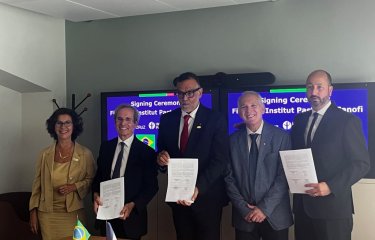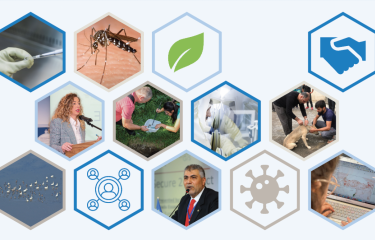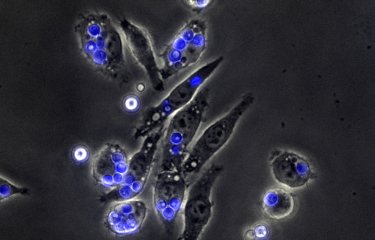The World Health Organisation has designed the Laboratoire de Parasitologie de l'Institut Pasteur de la Guyane as WHO Collaborating Centre for the Surveillance of Anti-malarial Drug Resistance.
Lise Musset and Eric Legrand will act as Heads of this new Centre attached to the WHO Americas Region (AMRO). This designation as a WHO Collaborating Centre (WHOCC) is effective for a period of four years from January 2014 to January 2018.
The Institut Pasteur in French Guiana, headed by Dr Philippe Quenel, carries out activities of 4 National Reference Centres (NRC) - laboratories associated to the West Indies and Guiana region, appointed by decree of the Ministry of Health for a term of 5 years from 2012 to 2016:
• 3 CNR in the Virology Laboratory: respectively Arbovirus, Influenzae viruses and Hantavirus
• 1 CNR in the Laboratory of Parasitology for malaria surveillance
This new WHO Collaborating Centre increase to 19 the number of WHOCC in the Institut Pasteur International Network including 8 WHOCC at the Institut Pasteur in Paris.
Malaria is a disease that can be fateful. It is caused by parasites transmitted to humans through the bites of infected mosquitoes. In 2012, malaria was responsible for 627,000 deaths mostly among African children under 5 years. In French Guiana, malaria affects each year between 2 000 and 5 000 patients it is endemic on the rivers borders with Suriname (Maroni), with Brazil (Oyapock) and within the Saul's region. Plasmodium falciparum and Plasmodium vivax are the most common parasites, however, P. falciparum is the most lethal.
For more information, please visit





